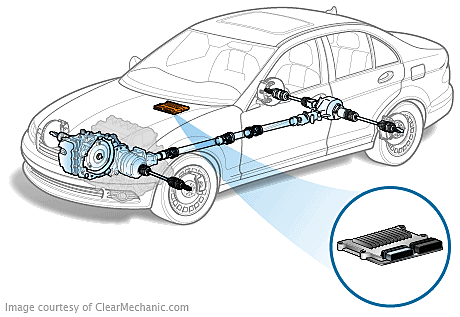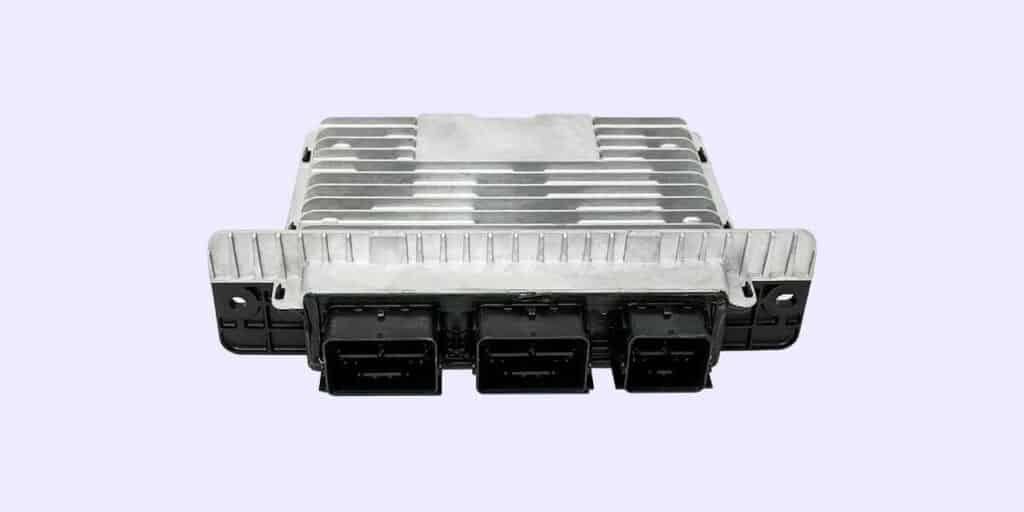Are you experiencing issues with your car’s performance, and suspect that the engine control module (ECM) may be the culprit? In this article, we’ll cover everything you need to know about the ECM, including symptoms of a faulty ECM, how to make it last longer, and the cost of replacing an ECM in Canada.
What is an Engine Control Module (ECM)?
The ECM is a critical component in modern car engines, responsible for managing and regulating various engine functions. It receives information from sensors throughout the car and uses that information to control various engine components, including fuel injection, ignition timing, and emissions control. In essence, the ECM is the “brain” of the engine, ensuring that everything is working together seamlessly.

How Much Will it Cost to Replace an ECM in Canada?
The cost of replacing an ECM can vary widely depending on the make and model of your car and the complexity of the replacement. On average, you can expect to pay between $500 and $1,500 for the replacement parts and labour, with the labour time ranging from 1-2 hours.
What are the Symptoms of a Faulty ECM?
If your ECM is faulty, you may experience a range of symptoms, including:
• Engine misfires or stalling
• Poor fuel efficiency
• Reduced engine performance or power
• Difficulty starting the engine
• Illuminated check engine light
• Delayed or erratic shifting in automatic transmissions
How Long Does an ECM Last?
The lifespan of an ECM can vary widely depending on factors such as driving habits, environmental conditions, and manufacturer quality. However, most ECMs are designed to last between 100,000 and 150,000 kilometers before requiring replacement.
How Does an ECM Become Defective?
The ECM, like any other electronic component, can become defective due to various factors. One of the primary reasons is electrical issues or wiring problems, which can cause a malfunction in the ECM’s performance. Exposure to moisture or water can also cause damage to the ECM, leading to its failure. Corrosion or wear and tear over time can also be a factor in ECM failure, especially if the vehicle is driven in harsh conditions or if regular maintenance is not performed. Additionally, malfunctions in other engine components, such as the oxygen sensor or fuel injectors, can put additional stress on the ECM and cause it to fail prematurely. It is important to address any issues with these components promptly to avoid further damage to the ECM.
How Can a Faulty ECM Affect Other Systems in the Car?
A faulty ECM can have a significant impact on the overall performance and safety of your car. In addition to the symptoms mentioned above, a defective ECM can cause issues with emissions control, resulting in increased pollution and potential regulatory violations.
Is it Safe to Drive with a Faulty ECM?
While you may be able to drive your car with a faulty ECM, it’s not recommended. The ECM plays a critical role in regulating engine functions and maintaining safe and efficient performance. Driving with a faulty ECM can lead to more serious issues down the road, including potential engine damage.
How Can I Make My ECM Last Longer?
To help extend the lifespan of your ECM, consider the following tips:
• Practice regular maintenance on your car, including oil changes and tune-ups
• Avoid driving in extreme temperatures or harsh environmental conditions
• Address any issues with other engine components promptly to prevent excess stress on the ECM

Conclusion: ECM Replacement
If you’re experiencing symptoms of a faulty ECM, it’s important to address the issue promptly to ensure safe and efficient operation of your car. While the cost of replacement can vary, it’s important to work with a reputable mechanic to ensure proper installation and optimal performance. By taking steps to care for your car and address issues promptly, you can help extend the lifespan of your ECM and ensure reliable performance for years to come.
